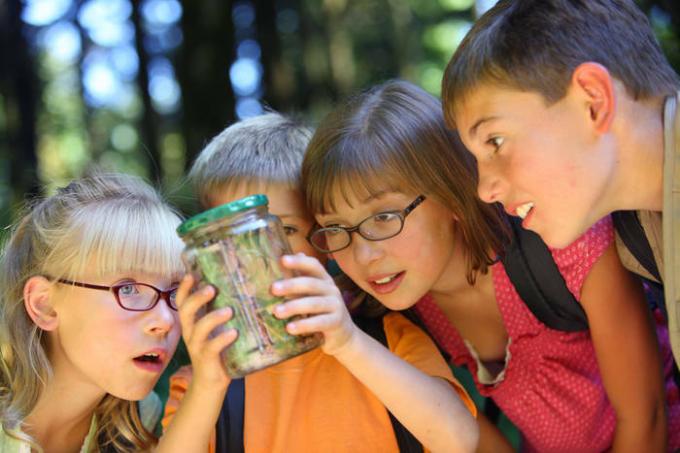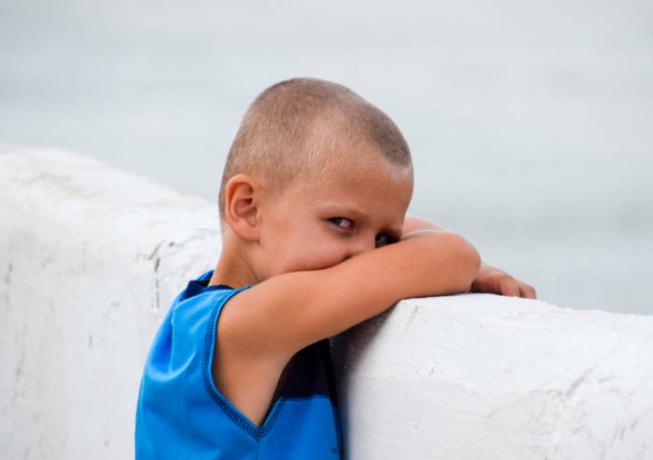At what age the child can be sent to the camp. How to determine that he is ready for a vacation without parents. How to properly support a child and help him with adaptation
Adapting a child to summer camp is always a little painful process. Regardless of whether your child is sociable or withdrawn, he is going to camp for the first time or already has the experience of vacation without parents, wants to go there or vice versa, resists your decision. In any case, a new team, a new daily routine and new rules await him. And getting used to them for the first three or four days will not be easy. About when and how to start the process of adaptation to the camp, how to help the child get used to the new place and what alarm bells to pay attention to, she told on her Facebook page psychologist Svetlana Royz.
How to choose a camp for a child

Choose a theme camp according to the interests of your child
So, you are determined to send your child to camp this summer. And now you are faced with a serious task: choose from a multitude of offers such a camp in which your child will be as comfortable as possible. First of all, in the selection process, you need to take into account the age of the child. Svetlana Royz believes that day camps are more suitable for children of primary school age (from 6 to 9 years old). It is somewhat similar to an after school, so the kid will be more familiar there. Starting from the age of 10, the child can already quite calmly be sent to a round-the-clock camp for a shift at 14-21 days. At this age, children become independent and often ask themselves to be without their parents.
Of course, this is not a universal rule. There are children who, already at the age of 8-9, are able to survive separation from mom and dad without any problems and can adapt to camps of a round-the-clock type of stay. Here you need to focus only on the child. Svetlana Royz highlights important indicators of a child's readiness for "independent" camp life:
- does the child have experience of a long stay without parents
- is he able to cope with personal hygiene on his own (go to the toilet, wash, brush his teeth, wash, comb)
- can he serve himself (get and choose clothes, dress and put on shoes for the weather)
- can the child go to bed on his own?
- how easily he establishes contacts with peers, can he be the first to meet
- how to get out of difficult situations, can you ask an adult for help
- can the child cope with emotions and experiences on his own, how does he endure someone else's aggression and frustration
- how easily he obeys general rules
If you are firmly convinced that your child is ready for two or three weeks to break away from his mother's skirt and the usual home life, start choosing a camp. When sending a child somewhere for a round-the-clock stay, first of all, you need to take care of the issue of his safety. ABOUT rules for choosing a safe camp for a child can be read in detail in our separate article with the recommendations of a child safety expert. Here we will repeat only the most important aspects of the choice:
- availability of permits for the operation of a children's health institution (preschool educational institution)
- availability of a contract for the provision of services for the stay of a child
- safety conditions in the camp (security, access of unauthorized persons to the territory, fire safety)
- medical care in the camp (there is a medical center, who provides first aid, what happens if a child gets sick)
- living conditions in the camp (in which rooms, for how many people do the children live, where are the shower, toilet and dining room)
- conditions for the organization of safe food (not only food, but also water)
- how the groups are formed, how many children will be in the squadron, and how many adults will be for one child
An important role in choosing a camp is played by the program of stay and the schedule of events and activities. Now there are so many theme camps (sports, English, IT camps). Consider the focus of the camp and choose one that will match the interests of the child. If daily activities will captivate him headlong, the adaptation process will be much easier. This moment is especially important for teenagers, says Svetlana Royz. In the theme camp, they will be able to find friends with the same interests faster. Project camps are good for children - where children during the shift unite around some task or implement a specific project.
Important aspects of adaptation

Think about what the child may have difficulty with.
All children are completely different, and what can become a source of fears and problems for one child will not cause any difficulties for another. For example, the issue of food in the camp. There are children who eat absolutely everything, and there are those who categorically do not accept certain foods. Be sure to clarify this point - whether there will be an opportunity for the child to refuse and choose. If milk porridge is regularly given in the morning, and your child basically does not eat it, he needs some alternative so as not to go hungry for half a day.
At first, it can be difficult for an only child in a family to withstand the "test" of constant contacts. There is not enough for such children in the camp personal space and the opportunity to be alone. Because of this, they can get nervous, irritated and cry over trifles. Be sure to discuss this moment with the counselors: it may be necessary for the child to provide a time and place where he can retire.
There are children who find it difficult to ask for help. They try to cope with their problem alone, and get very worried when something goes wrong. If your child is one of them, warn the counselors that he will need a little more attention at first. Likewise, counselors should be warned if your child is having difficulty getting to know each other. Sometimes it is enough for adults on the first day to "make friends" with the team, and the adaptation process will go like clockwork.
A separate topic is the possibility of communication with the child. Each camp has its own rules: somewhere in general do not allow using gadgets, somewhere a certain time is set for calls to parents. These rules are important and you need to try to withstand: your constant alarm calls and messages can become a source of unnecessary stress for the child. However, at the same time, you must be firmly convinced that in an emergency he will always be able to contact you. Likewise, on your part: you should have the right at any time to contact the child directly or through counselors.
If a child wants to go home

Clarify the reason the child wants to go home.
At first (usually two or three days) your “vacationer” may call you with tears in his voice and desperately ask you to go home. And here parents often go to one of two extremes. Someone rushes off and, at the first call, rushes to pick up the child from the camp. Some, on the contrary, do not respond to these requests, considering them to be manipulation and a manifestation of weakness. Say, the child must learn to be independent: if there are problems in the camp, he must solve them himself.
Svetlana Royz believes that here you need to adhere to the golden mean. During these "adaptation" calls, it is important to listen carefully to the child and try to understand their cause. There may be three reasons: the child may miss his parents, he may be bored or sad at the camp, or he may be really bad.
If a child misses their parents and home, it is very important to nourish them with your support. Talk about how bored and unusual you are without him. Remind him that your love is always with him, even when you are not together. Remember your home traditions (secret words, hugs, kissing) and suggest coming up with new rituals for the camp. On the way, the child writes notes or keeps a diary, takes photos of interesting events in the camp and sends them to you. A "reminder of home" - some kind of toy or trifle connected with parents - works very well in this situation. You can say warm words to your child in a message and send them so that they can listen to them at any time.
If your child is bored at camp, be sure to try to understand why. Find out if he was able to get to know the team, if he found friends, if he is interested in classes. Svetlana Royz advises in this case to give the child a "top secret" task: for example, to find out the names all boys or girls in the squadron, if they have brothers or sisters, what pets are in home. You can also remind your child of his favorite activities or games, and suggest finding yourself a partner in this.
If a child says that he is feeling bad, complains that he is in the camp tease or hurt - we do not ignore these signals and do not write off on adaptation, but immediately call the counselor. Here it is important to do without a "bump start" and accusations in order to accurately find out the cause of the situation. Check with the counselor if he knows your child by name and face, and if he understands who is in question at all. Ask how the child behaves in the camp, and if he has conflicts with the team. Ask the counselor to closely observe your child and their peer relationships. Make it clear that you are ready to intervene if the situation takes a threatening turn. And be ready to intervene, no matter what it costs you: the most important thing here is your child, his psychological state and the confidence that parents will always come to the rescue in case of danger.
You will also be interested to read:
10 important things to consider when choosing a summer camp: a cheat sheet for parents
7 myths about children's camps that all parents fear: find out the truth

